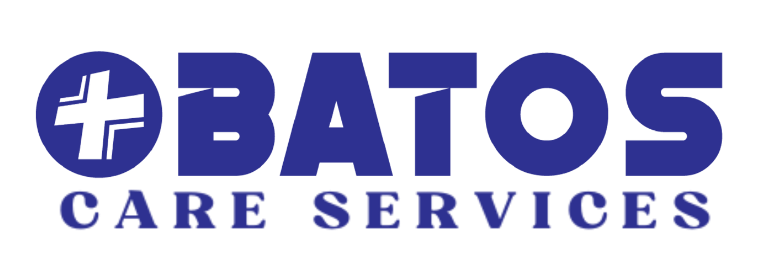World Autism Acceptance Week is an incredibly important event that takes place annually, aimed at raising awareness about Autism Spectrum Disorder (ASD) and promoting acceptance and inclusion of people on the spectrum.
This week-long event is held globally from March 26th to April 2nd, with World Autism Awareness Day being celebrated on April 2nd. The purpose of this event is to create a more understanding and accepting society for people with autism, where they can feel valued and included.
Autism Spectrum Disorder is a neurodevelopmental condition that affects communication, social interaction, and behavior. People with ASD may have difficulty with social interactions, communication, and may engage in repetitive or restrictive behaviors.
While there is no known cure for ASD, early diagnosis and intervention can improve outcomes and quality of life for individuals with ASD.
Despite the fact that ASD affects 1 in 54 children in the United States, according to the Centers for Disease Control and Prevention (CDC), many people with ASD continue to face discrimination, stigmatization, and exclusion. This is why events like World Autism Acceptance Week are so important. They help to raise awareness about ASD and promote acceptance and inclusion of people with ASD.
During World Autism Acceptance Week, organizations and individuals around the world come together to raise awareness about ASD and promote acceptance and inclusion. This includes lighting up landmarks in blue, the color associated with autism awareness, and hosting events and activities to promote understanding and acceptance.
One of the most significant aspects of World Autism Acceptance Week is the opportunity it provides for people with autism to share their stories and experiences. This helps to promote understanding and raise awareness about the challenges faced by individuals with ASD, as well as their strengths and abilities. It also helps to reduce the stigma surrounding ASD and promotes a more accepting and inclusive society.
To fully understand the importance of World Autism Acceptance Week, it is essential to learn more about Autism Spectrum Disorder and how it affects individuals.
ASD is a spectrum disorder, which means that it affects individuals in different ways and to varying degrees. Some individuals with ASD may have significant difficulties with communication and social interaction, while others may have fewer challenges in these areas.
In addition to communication and social interaction challenges, people with ASD may also engage in repetitive or restrictive behaviors, have sensory sensitivities, and experience difficulties with executive functioning (i.e., planning, organizing, and executing tasks). These challenges can have a significant impact on the daily lives of individuals with ASD, as well as their families and caregivers.
Despite these challenges, people with ASD also have many strengths and abilities. Many individuals with ASD have excellent attention to detail, exceptional memory, and strong problem-solving skills. They also often have a unique way of looking at the world, which can lead to innovative and creative thinking.
One of the most significant barriers to acceptance and inclusion for people with ASD is the lack of understanding and awareness about the disorder. Many people have misconceptions about ASD, which can lead to discrimination, stigmatization, and exclusion. Events like World Autism Acceptance Week are essential for raising awareness and promoting understanding of ASD.
There are many ways that you can get involved in World Autism Acceptance Week. Here are some ideas:
- Educate yourself: Learn more about ASD and the challenges faced by individuals with ASD. This will help you to be more understanding and accepting of people with ASD.
- Attend events: Many organizations host events during World Autism Acceptance Week. Attend these events to learn more about ASD and show your support for individuals with ASD.
- Wear blue: Wear blue, the color associated with autism awareness, to show your support for people with ASD.
- Share stories: Share your own experiences with ASD, or the experiences of someone you know. This can help to raise awareness and promote understanding.
- Volunteer: Volunteer your time and resources to organizations that support individuals with ASD and their families. This can include volunteering at local autism support groups or participating in fundraising events for autism-related charities.
- Advocate: Advocate for policies and laws that promote acceptance and inclusion of people with ASD. This can include supporting autism-friendly workplaces and advocating for educational accommodations for individuals with ASD.
- Support autism-friendly businesses: Many businesses have made efforts to become more autism-friendly, such as providing sensory-friendly environments or hiring employees with ASD. Supporting these businesses can help promote acceptance and inclusion of individuals with ASD.
- Create a safe space: Create a safe and inclusive space for individuals with ASD. This can be as simple as providing sensory-friendly activities or making accommodations for individuals with sensory sensitivities.
- Use person-first language: When discussing individuals with ASD, use person-first language, such as “person with autism” instead of “autistic person”. This helps to emphasize the personhood of individuals with ASD and promote respect and acceptance.
- Spread the word: Share information about World Autism Acceptance Week and the importance of acceptance and inclusion for individuals with ASD on social media and with friends and family. This helps to raise awareness and promote understanding.
World Autism Acceptance Week
In conclusion, World Autism Acceptance Week is a vital event that promotes awareness, understanding, and acceptance of individuals with Autism Spectrum Disorder.
By educating ourselves, attending events, volunteering, advocating, and supporting autism-friendly businesses, we can all play a part in promoting acceptance and inclusion for individuals with ASD. Together, we can create a more accepting and inclusive society where individuals with ASD are valued and can thrive.



